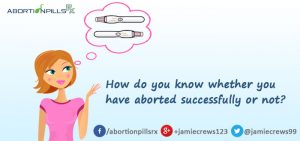
Contraception methods indeed help have protected sexual intercourse and avoid an unwanted pregnancy. However, women more than 90% of women wish to start a family at some point in their life. You need to learn when should be the right time to stop using your contraception and start trying to get pregnant as your age will indeed have an influence on fertility.
You need to note that even if you have had MTP kit in the past to end your unwanted pregnancy, the medical abortion procedure does not have any impact on your future pregnancies or even the fertility.
This blog explains which is the right age for you to get pregnant and which is the phase when you’re most fertile in your life.
When you’re 20+
The early 20s could be too young to get pregnancy however, you’re most fertile when you are in this phase. Due to the high number of good quality eggs being present in the fallopian tubes. Hence healthcare providers typically advise having protected sexual intercourse.
If you conceive unintentionally, abortion could be unwanted pregnancy solution. However, you should make sure that you don’t into any such situation and use contraception for sexual intercourse.
When you’re 30+
As you age, the quality of eggs begins to decline, especially around 33 which takes speed as you cross 35. The number of eggs in women’s body gets dropped with age and hence the chances of pregnancy start decreasing.
Out of a million eggs that women are born with, only around 25000 eggs are left as women become 37 years old. If you are in the early thirties and trying to get pregnant, you should start as soon as possible. The complications involved at this age could be low but if you cross 35 the complications increase.
There can be risks of miscarriage or abnormal pregnancies such as ectopic pregnancy. Some women may even face difficulties during the delivery of the baby.
When you’re 40+
The decline in the quality of the eggs which has already begun in the late 30s takes a steep low after you hit 40s. This could be the time of menopause for many women after which they cannot get pregnant. Even if the woman conceives a baby during this time, the level of complications involved could be high.
Fertility options:
If you are in your late 30’s and struggling to conceive for over a year, there could be problems with fertility. In this case, if you wish to conceive, visit your healthcare provider and learn the issues and hurdles in getting pregnant. Your healthcare provider may suggest the following steps for trying to get pregnant.
- Medication for stimulating eggs production
- In Vitro Fertilization
Some women may still face problems in conceiving despite all efforts put. This is due to your age has more influence on your fertility than the aforementioned methods. If nothing from the above-mentioned methods works out, some women healthcare experts also suggest fertilizing the eggs with sperms and then insert them into the uterus.
Family planning:
When you’re thinking of family planning, you have to understand the factors mentioned above and then plan it accordingly. Use birth control methods such as contraception medicines, condoms, vaginal ring, etc. however, learn how to stop your contraception methods and when to start trying to get pregnant.
Observe your menstrual cycle to understand your ovulation phase. It is advised to try to conceive during your ovulation period because that’s when you’re most fertile. Remember that the ovulation period is different for every woman depending on her menstrual cycle. Consult your healthcare provider to know yours and begin preparing for conception accordingly.


